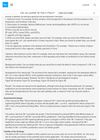3 citations,
January 2023 in “Nutrients” Hordenine may help hair grow by activating a specific cell growth pathway.
 3 citations,
December 2022 in “Nutrients”
3 citations,
December 2022 in “Nutrients” Limonin from young citrus fruits may help with hair growth by affecting cell growth and hair cycle pathways.
 3 citations,
January 2018 in “Food Science and Technology Research”
3 citations,
January 2018 in “Food Science and Technology Research” Wasabi compound may help promote hair growth.
 1 citations,
July 2023 in “International Journal of Molecular Sciences”
1 citations,
July 2023 in “International Journal of Molecular Sciences” Treating fat stem cells with low oxygen boosts hair growth cell growth through specific signaling pathways.
 1 citations,
October 2001 in “Journal of Wood Science”
1 citations,
October 2001 in “Journal of Wood Science” Some extracts from woods and fungi can promote hair growth better than a known hair growth substance.
 February 2024 in “Research Square (Research Square)”
February 2024 in “Research Square (Research Square)” Tiny particles from skin cells can help grow new hair by activating a specific growth signal during skin healing.
 November 2023 in “Experimental Dermatology”
November 2023 in “Experimental Dermatology” Exosomes from human hair follicle cells can improve aging hair follicle cell function and help regenerate hair follicles.
 April 2023 in “The journal of investigative dermatology/Journal of investigative dermatology”
April 2023 in “The journal of investigative dermatology/Journal of investigative dermatology” Dermal papilla cell-derived exosomes can help stem cells grow hair.

VB-1, a natural compound, may promote hair growth by enhancing important cell signaling and increasing key gene expression.
 January 2017 in “Journal of Dermatology and Venereology”
January 2017 in “Journal of Dermatology and Venereology” Naringenin and Hesperetin may help hair grow and protect hair cells from damage.
 92 citations,
June 2005 in “Journal of Investigative Dermatology”
92 citations,
June 2005 in “Journal of Investigative Dermatology” All-trans retinoic acid causes hair loss by increasing TGF-β2 in hair follicle cells.
 87 citations,
April 2018 in “Biochemical and Biophysical Research Communications”
87 citations,
April 2018 in “Biochemical and Biophysical Research Communications” Exosomes from dermal papilla cells can help grow hair and might treat hair loss.
 58 citations,
March 2019 in “Experimental Dermatology”
58 citations,
March 2019 in “Experimental Dermatology” Exosomes from human skin cells can stimulate hair growth and could potentially be used for treating hair loss.
48 citations,
April 1995 in “PubMed” Testosterone helps beard and axillary hair cells grow by releasing growth factors from dermal papilla cells.
 42 citations,
January 2017 in “Stem cells international”
42 citations,
January 2017 in “Stem cells international” Adding hyaluronic acid helps create larger artificial hair follicles in the lab.
34 citations,
June 2009 in “British journal of dermatology/British journal of dermatology, Supplement” Vitamin C derivative helps hair grow longer by making cells produce a growth factor through a specific cellular pathway.
 19 citations,
December 2015 in “Journal of Materials Chemistry B”
19 citations,
December 2015 in “Journal of Materials Chemistry B” Scientists have created a method to deliver specific cells that can regenerate hair follicles, potentially offering a new treatment for hair loss.
 17 citations,
May 2015 in “Nanomedicine: Nanotechnology, Biology and Medicine”
17 citations,
May 2015 in “Nanomedicine: Nanotechnology, Biology and Medicine” Scientists created tiny particles loaded with a hair growth drug, minoxidil, that specifically target hair follicles and skin cells to potentially improve hair growth.
13 citations,
December 2021 in “Wound repair and regeneration” Photobiomodulation helps hair regrow in injured skin by aiding cell movement and secretion.
 13 citations,
April 2020 in “Experimental Cell Research”
13 citations,
April 2020 in “Experimental Cell Research” PCAT1 helps hair growth by controlling miR-329/Wnt10b.
 11 citations,
November 2021 in “Clinical, Cosmetic and Investigational Dermatology”
11 citations,
November 2021 in “Clinical, Cosmetic and Investigational Dermatology” Resveratrol may help hair grow, but more research is needed.
Laser diode light boosts hair follicle cell growth and certain gene expressions.
 7 citations,
March 2021 in “Molecular Medicine Reports”
7 citations,
March 2021 in “Molecular Medicine Reports” A mix of specific inhibitors and a growth factor helps keep hair growth cells from losing their properties in the lab.
 6 citations,
January 2020 in “Skin Pharmacology and Physiology”
6 citations,
January 2020 in “Skin Pharmacology and Physiology” HIF-1α stimulators, like deferiprone, work as well as popular hair loss treatments, minoxidil and caffeine, in promoting hair growth.
 3 citations,
January 2017 in “Yonsei Medical Journal”
3 citations,
January 2017 in “Yonsei Medical Journal” Blocking 11β-HSD1 can lessen the harmful effects of glucocorticoids on hair growth cells.
 1 citations,
September 2019 in “Journal of Investigative Dermatology”
1 citations,
September 2019 in “Journal of Investigative Dermatology” Human hair matrix cells and dermal papilla fibroblasts can form early hair follicle structures but don't produce hair shafts yet.
 1 citations,
September 2017 in “Journal of Investigative Dermatology”
1 citations,
September 2017 in “Journal of Investigative Dermatology” Blocking a specific enzyme can reduce the negative impact of stress hormones on hair growth cells.
 1 citations,
September 2017 in “Journal of Investigative Dermatology”
1 citations,
September 2017 in “Journal of Investigative Dermatology” Hair care products reduced hair roughness, a combination of Stemoxydine and Resveratrol increased hair density, fermented mackerel oil promoted hair growth, and genes TERT and Bmi-1 helped create new hair follicles.
 December 2023 in “Scientific Reports”
December 2023 in “Scientific Reports” Scientists created cell lines from balding patients and found that cells from the front of the scalp are more affected by hormones that cause hair loss than those from the back.
 October 2023 in “Scientific Reports”
October 2023 in “Scientific Reports” Oxytocin may help hair grow by increasing hair growth-related genes and factors.
























